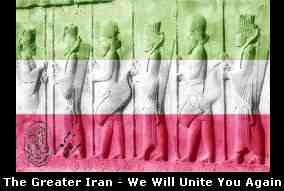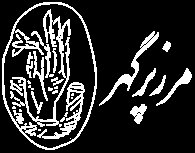
- I found this article after my father told me about it last night. I wish I had seen it earlier. I direct your attention to the part of Mr. Ledeen's testimony where he specifically talks about revolution (It's highlighted in bold red). He hits the nail on the head ladies and gents! This is exactly what needs to be done. In fact, I will go one further and assert that the extra fifty-million being spent on VOA and other broadcasts is a waste of money. The help that the Iranian people need is financial and in the form of organizational support. PLEASE READ
I am delighted and honored by your invitation to discuss American policy toward Iran, but before I do that, I hope I will be permitted a few personal words in appreciation of the welcome contribution that you, Chairman Hyde, have made to our country and to the tenor of life in Washington.
Our national political debate has long been very fractious, and this moment is especially nasty. But you are a rare man, Mr. Chairman. You have never forgotten that our elected representatives are sworn to advance the national interest, whatever the transient demands of party or faction. You have done that with rare grace and humor, through some terrible personal tragedies and despite some particularly insensitive slanders. After nearly thirty years in Washington, I cherish many memories of your ability to defuse a tense situation with an urbane chuckle, all the while reminding your colleagues of their responsibilities to the American people. Thank you, Mr. Chairman. I hope that your years ahead are full of satisfaction and fulfillment.
Future historians will be baffled at the intensity and tenacity with which successive American administrations have refused to deal seriously with the obvious and explicit threat from the Islamic Republic of Iran. From the first hours of the fanatical regime of the Ayatollah Ruhollah Khomeini in 1979, Iran declared war on us in language it seems impossible to misunderstand. We are the great Satan, while they are the representatives of the one true faith, sworn to combat satanic influence on earth. Hassan Abassi, the chief strategic adviser to President Ahmadi-Nezhad, recently put it this way: ÒAmerica means enemy, and enemy means Satan.
They have waged unholy war against us ever since. They created Hizbollah and Islamic Jihad, and they support most all the others, from Hamas and al Qaeda to the Popular Front for the Liberation of Palestine General Command. Iran's proxies range from Shiites to Sunnis to Marxists, all cannon fodder for the overriding objective to dominate or destroy us.
A lot of nonsense has been written about the theoretically unbridgeable divide between Sunnis and Shiites, and we should remind ourselves that the tyrants of the Islamic Republic do not share these theories. The Iranian Revolutionary Guards as Shiite as they come were trained, beginning in the early 1970s, by Asser Arafat's Fatah Sunnis one and all. Arafat was the first foreign leader to be invited to Tehran after the overthrow of the shah, proving that when it comes to killing infidels, theological disagreements are secondary to the jihad. Yet even today, we hear that it is quite impossible that the mullahs have supported al Qaeda, because bin Laden, Zawahiri and Zarqawi are famously Sunni.
The Iranian war against us is now twenty-seven years old, and we have yet to fight back. In those twenty-seven years thousands of innocent people have died at the hands of the mullahsÕ terror state, inside Iran and around the world. Many Americans have been killed, in Lebanon twenty years ago and in Iraq today, by terrorists armed, trained and funded by the Islamic Republic. Iran is invariably atop the State DepartmentÕs list of state sponsors of terrorism, and we know that Abu Musab al-Zarqawi created a European-wide terrorist network in the latter years of the last century from a stronghold in Tehran. We know this from public sources Ðfrom copious documentation presented by the German and Italian Governments in public trials against terrorists arrested in their countries. Among the evidence introduced by the prosecution were intercepts of phone conversations between terrorists in Europe and Zarqawi in Tehran.
We also know from abundant evidence ranging from documents to photographs captured by American forces in both Fallujah and Hilla of the intimate working relationships between terrorists in Iraq and the regimes in Tehran and Damascus. Indeed, the terror war in Iraq is a replay of the strategy that the Iranians and the Syrians used in the 1980s to drive us and our French allies out of Lebanon. Those Americans who believed it was possible to wage the war against terrorism one country at a time, and that we could therefore achieve a relatively peaceful transition from Saddam's dictatorship to an elected democracy, did not listen to the many public statements from Tehran and its sister city in jihad, Damascus, announcing in advance that Iraq was about to become the new Lebanon.
They have made good on their threats. On Monday, ABC News broadcast a story about the discovery of very powerful bombs--the so-called IEDs--sent from Iran into Iraq.
"I think the evidence is strong that the Iranian government is making these IEDs, and the Iranian government is sending them across the border and they are killing U.S. troops once they get there," said Richard Clarke, former White House counterterrorism chief and an ABC News consultant. "I think it's very hard to escape the conclusion that, in all probability, the Iranian government is knowingly killing U.S. troops."
Inevitably, there are still those who believe that somehow our differences can be reconciled, and we can yet reach a modus vivendi with the Islamic Republic. I wish they were right, but the Iranians' behavior proves otherwise. Religious fanatics of the sort that rule Iran do not want a deal with the devil. They want us dominated or dead. There is no escape from their hatred, or from the war they have waged against us. We can either win or lose, but no combination of diplomatic demarches, economic sanctions, and earnest negotiations, can change that fatal equation. They will either defeat us, or perish. And that is their decision, not ours. We have yet to engage.
THE NUCLEAR QUESTION
A few months ago, the CIA concluded that Iran could not produce nuclear weapons in less than a decade, but that timeline seems to have significantly contracted. Some Russian experts reportedly think it could be a matter of months, and they probably have better information than we do. In any event, the nuclear question has been elevated to the center of the policy debate, as if nothing else mattered.
The nuclear question is certainly serious. Numerous Iranian leaders have said that they intend to use nuclear weapons to destroy Israel, and contemporary history suggests that one should take such statements at face value. A nuclear Iran would be a more influential regional force, and since its missiles now reach deep into Europe, it would directly menace the West. Moreover, once Iran manages to put nuclear warheads on their intermediate range missiles, they might even be able to direct them against American territory from one or more of the Latin American countries with which the mullahs are establishing strategic alliances. The mullahs make no secret of their strategy; just a couple of weeks ago, when the leader of Hamas was received in honor in Tehran, a photograph of the event was released, in which there was a colorful poster of President Ahmadi-Nezhad and Supreme Leader Khamenei along with Castro, Morales and Chavez. The mullahs would be pleased to nuke Israel, and they would be thrilled to kill millions of Americans.
But they don't need atomic bombs to kill large numbers of Americans; they have long worked on other weapons of mass destruction, and they doubtless have moved plenty of terrorists all over the Western world. Hardly a day goes by without chest-pounding speeches from the mullahs warning us about the wave of suicide bombers headed our way. I am afraid that the obsession with the nuclear question often obscures the central policy issue: that the Islamic Republic has waged war against us for many years and is killing Americans every week. They would do that even if they had no chance of developing atomic bombs, and they will do that even if, by some miracle, the feckless and endlessly self-deluding governments of the West manage to dismantle the secret facilities and impose an effective inspection program. The mullahs will do that because it is their essence. It is what they are.
The nuclear threat is inseparable from the nature of the regime. If there were a freely elected, democratic government in Tehran, instead of the self-selecting tyranny of the mullahs, we would not feel such a sense of urgency about the nuclear program, or about an effective American policy toward Iran.
And still we debate how to respond. Some even wonder if we should respond at all. That is why we are here today.
WHAT TO DO?
The first step in crafting a suitable policy toward Iran is to abandon the pretense that we can arrive at a negotiated settlement. It can't be done. The Iranians view negotiations as merely tactical enterprises in support of their strategic objectives. Just look at the news from this past Sunday. According to the London Sunday Telegraph:
Iran duped European Union negotiators into thinking it had halted efforts to make nuclear fuel while it continued to install equipment to process yellowcake -- a key stage in the nuclear-fuel process, a top Iranian negotiator boasted in a recent speech to leading Muslim clerics. That bit of incautious self-congratulation came from Hassan Rowhani, the mullah in charge of negotiations with the French, British and Germans. He thoughtfully tells us that the Iranians used the negotiations to buy time for their nuclear program. They never intended to negotiate in good faith. As Colin Powell said in mid-January, Iran cannot be trusted to tell the truth about its nuclear program.
Nor is there any reason to believe that we can count on the United Nations to impose the rules of civilized behavior on the mullahs, either on nuclear issues or terrorism.
That leaves us with three courses of action, none of which is automatically exclusive of the others: sanctions, military strikes, and support for democratic revolution. I am opposed to sanctions, I am generally opposed to military strikes, and I fully endorse support for revolution.
SANCTIONS
I do not know of a case in which sanctions have produced a change in behavior by a regime that considered us its enemy. The two possible exceptions are regimes that thought of themselves as friends of the United States, and wanted to be embraced by us: Chile and apartheid South Africa. But enemy regimes donÕt respond to sanctions, whether it be Castro's Cuba or Qadaffi's Libya or the Soviet Empire. Indeed, sanctions aimed against the national economy are misconceived, because they harm the people who are not our enemies and may be our best weapon against the tyrants while leaving the tyrannical and oppressive elite largely untouched.
The basic rule for dealing with our tyrannical enemies is to punish the regime and help the people. Big-time economic sanctions or embargoes cannot do that, but very limited sanctions and other economic and financial actions can. I am very much in favor of seizing the assets of the Iranian leaders, because while the mullahs have ruined the lives of most Iranians, they have greatly enriched themselves at the people's expense, and a good deal of that money has been squirreled away in foreign bank accounts. My favorite example of the greed of the Iranian ruling class is a transaction tax, roughly worth 5% of the purchase price, all of which goes into the personal fund of the Supreme Leader, Ali Khamenei.
That money properly belongs to the Iranian people, whose misery grows from day to day. We should hold it for them, and return it to a freely elected government after we have helped them overthrow their oppressors.
I also agree that a travel ban on the top leaders would be useful, if for no other reason than its symbolic value. It tells the Iranian people that we consider the mullahs unworthy of acceptance in the civilized world. The Iranians know it, far better than we. But they need to see that we have taken sides, and the travel ban is one good way to do that.
MILITARY ACTION
Nobody is talking about an invasion of Iran, but there is considerable speculation about limited strikes against nuclear facilities. I do not know enough about our information to be able to offer an informed opinion on this matter. I would only point out that our intelligence about Iran has been bad since before the revolution of 1979, and one would have to be very optimistic to base a military plan on our current intelligence product. Iranians are skilled at deceit, and have been hiding their nuclear projects from us for a long time.
Military action carries enormous risks, because of the many unforeseeable consequences. Some number of Iranians would likely be inclined to rally to the national defense, even if they hate the regime. It's impossible to estimate how many of them would take this path. Moreover, there would inevitably be innocent victims, and our strategy should aim at saving innocents, not killing them. Add to that the virtual certainty that Iran would respond with a wave of terrorism, from Iraq to Europe to the homeland.
That said, our failure to design and conduct a serious Iran policy for so long has narrowed out options, and we may be faced with a choice among various unattractive actions. If we and our allies decide that Iranian nuclear facilities must be taken out, we should first make clear to the Iranian people that we have come slowly and reluctantly to this position, that the regime could have avoided this terrible situation by negotiating in good faith, and that we would never dream of doing such a thing if Iran were governed by reasonable people.
In fact, whatever policy we adopt, it is very important for us to talk a lot to the Iranian people.
REVOLUTION
Iran had three revolutions in the twentieth century, and boasts a long tradition of self-government. The Iranian Constitution of 1906 might well serve as a model for the entire region, and prior to Khomeini's seizure of power, Iran was by far the most progressive Muslim country in the Middle East, providing considerable opportunity for women and a generally tolerant attitude toward minority religious groups, including Jews, Christians and Baha'i.
The demographics certainly seem to favor radical change: roughly 70% of Iranians are twenty-nine years old or less. We know from the regime's own public opinion surveys that upwards of 73% of the people would like a freer society and a more democratic government, and they constantly demonstrate their hatred of the regime in public protests, in the blogosphere in both Farsi (the internet's fourth most popular language) and English, in strikes (the most recent of which is the ongoing action by the Tehran bus drivers' union), and from time to time in violent acts against officials on the ground. The regime's reaction is violent and ruthless, but the protests continue, and there is good reason to believe that the mullahs are extremely worried. In response to recent demonstrations in Khuzestan, the oil-producing region in the south, the regime sent in members of the Badr Brigade (the Iranian-trained militia in Iraq) and of (Lebanese) Hizbollah. This suggests a lack of confidence in the more traditional security organizations: the regular Army, the Revolutionary Guards, and the thuggish Basij, generally described as fanatically loyal to the Islamic ideals of the mullahcracy.
Yet there is a vast cottage industry that gainsays the possibility of successful democratic revolution in Iran. The pessimists say many things, including the lack of a charismatic leader, the viciousness of the regime, and, with the urgency provided by the nuclear program, a shortage of time, arguing that revolutions take a long time to gather critical mass.
The pessimism is as bizarre as it is discouraging. We empowered a successful revolution in the Soviet Empire with the active support of a very small percentage of the population. How hard can it be for a revolution to succeed in Iran, where more than 70% of the people want it? Our experience with Soviet Communism suggests that revolution can triumph under harsh repression, and that there are often dynamic democratic revolutionaries even if we cannot always see them. Indeed, I suspect that in Iran there are many potential leaders, some of whom are in prison while others are underground. I also suspect that there has been a lot of planning, both for the revolution itself, and for the shape of the free society thereafter. This was the case in many of the Soviet satellites--Poland and Czechoslovakia being prime examples--and is certainly ongoing in the Iranian diaspora, whether in the United States or in Europe. It would be surprising if Iranian democrats were not doing the same.
The regime is famously vicious, as the mounting numbers of executions and the ongoing torture in IranÕs prisons unfortunately demonstrate. But tyranny is the most unstable form of government, and democratic revolution invariably surprises us. If anyone had forecast a successful democratic revolution in the Ukraine, even three months before it occurred, most of us would have considered it a fantasy.
Nobody knows with certainty whether revolution can succeed in Iran, or, if it can, how long it will take. But tyrannies often fall with unexpected speed, and in recent years a surprising number of revolutions have toppled tyrants all over the world. Most of them got help from us. Most revolutions, including our own, required external support in order to succeed, and there is a widespread belief in Iran that a democratic revolution cannot defeat the mullahs unless it is supported by the United States. They are waiting for concrete signs of our support.
Support means, above all, a constant critique by our leaders of the regime's murderous actions, and constant encouragement of freedom and democracy. Too many of us have forgotten the enormous impact of Ronald Reagan's denunciation of the Soviet Union as an evil empire. The intellectual elite of this country condemned that speech as stupid and dangerous, yet the Soviet dissidents later told us that they considered it enormously important, because it showed that we understood the nature of the Soviet regime, and were committed to its defeat. In like manner, the Iranians need to see that we want an end to the Islamic Republic. We need to tell them that we want, and show them that we will support, regime change in their country, peaceful, non-violent regime change, not revolution from the barrel of a gun.
We also need to talk to them very specifically about how such revolutions succeed. We should greatly expand our support for private radio and television broadcasters, both here and in Europe, and we need to get serious about using our own broadcasts as revolutionary instruments. We are not competing for market share, and we are not in the entertainment business; we should be broadcasting interviews with successful revolutionaries from other countries, and we should be broadcasting conversations with experts on non-violent revolution. The Iranians need to see, in detail, what works and what does not. They need to see and hear the experiences of their revolutionary comrades.
We also need to provide them with the wherewithal for two vitally important revolutionary actions: build resources for a strike fund, and get them modern instruments of communication. The strike fund speaks for itself: workers need to be able to walk off the job, above all the oil fields and the textile and transportation sectors, and know they will be able to feed their families for several weeks.
The instruments of communication include servers, laptops, satellite and cell phones and phone cards. The regime has been more effective in identifying and repressing nation-wide communications among dissidents. They have been less effective quashing local networks. We should accordingly provide the local networks advanced technology in order for them to better communicate between cities and regions.
LEADERSHIP IN WASHINGTON
There is much that is praiseworthy in the Iran Freedom Support Act. I think it can be improved by more openly embracing a policy of regime change in Iran, and allocating an adequate budget to demonstrate our seriousness in this endeavor. I know some members would prefer to dance around the explicit declaration of regime change as the policy of this country, but anyone looking closely at the language and content of the Iran Freedom Support Act, and its close relative in the Senate, can clearly see that that is in fact the essence of the matter. You canÕt have freedom in Iran without bringing down the mullahs.
I heartily endorse the suggestion that the President appoint someone responsible for our Iran policy, and who will advise the president and report to the Congress. The choice of that person is important, because the Iranians will be encouraged by someone who they believe to be firmly on their side, while they will be discouraged by someone who has participated in the failed efforts to formulate a serious Iran policy.
Mr. Chairman, I hope these thoughts will be useful to you and your colleagues in your deliberations. I believe this is the most important question we face in the Middle East, and in the war against terror. I wish you wisdom, patience, and good humor in your labors.
Original Article


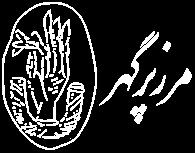

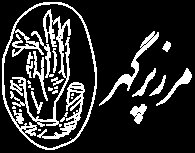
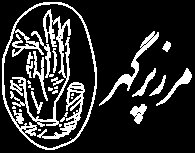
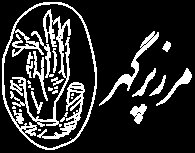


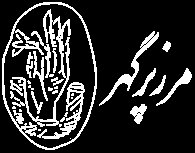
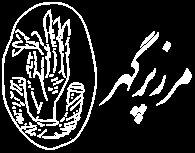
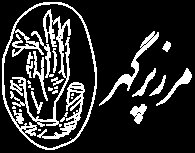
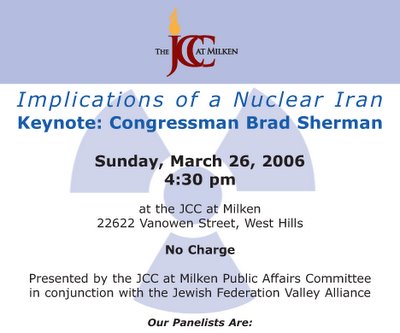

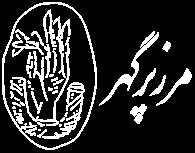
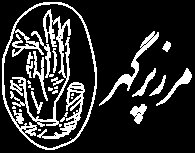
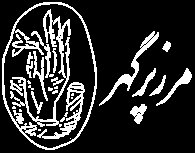
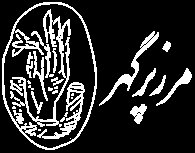

.42.jpg)
